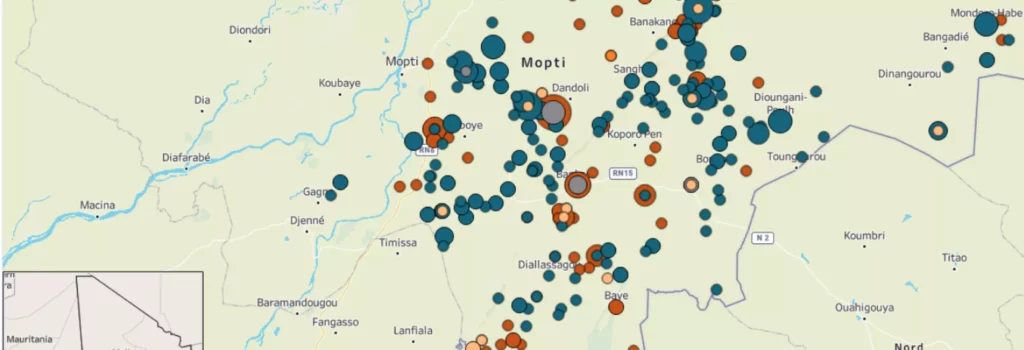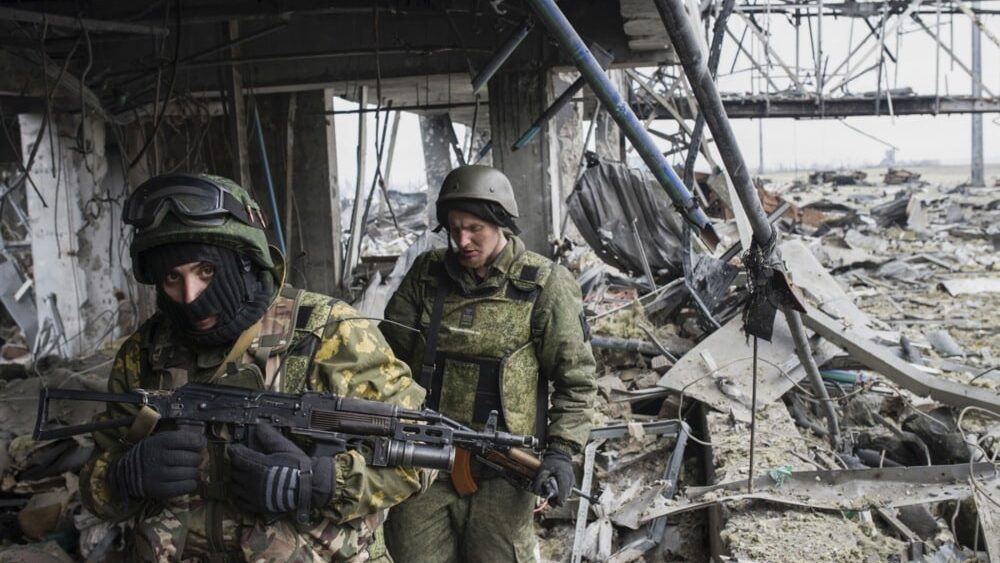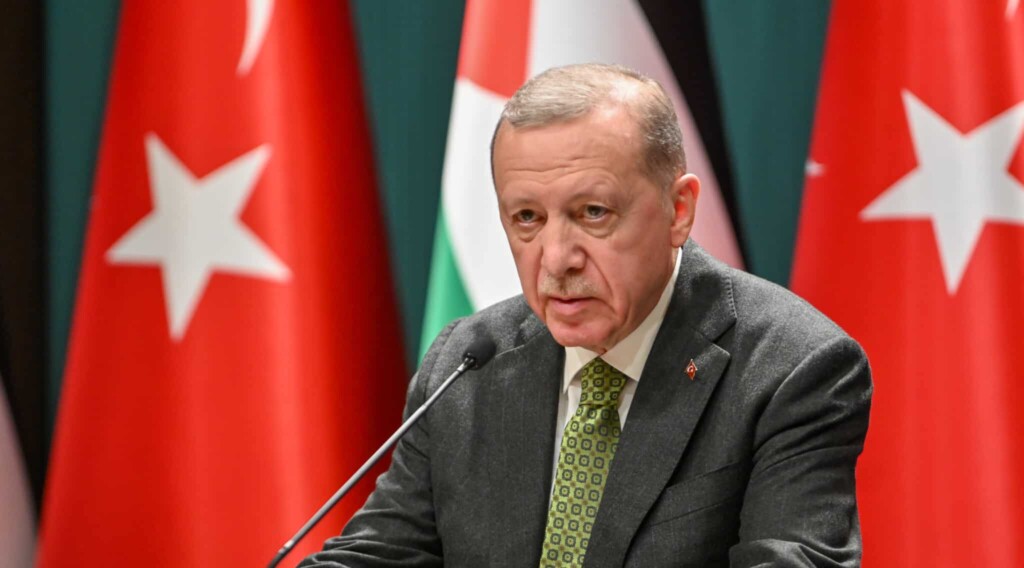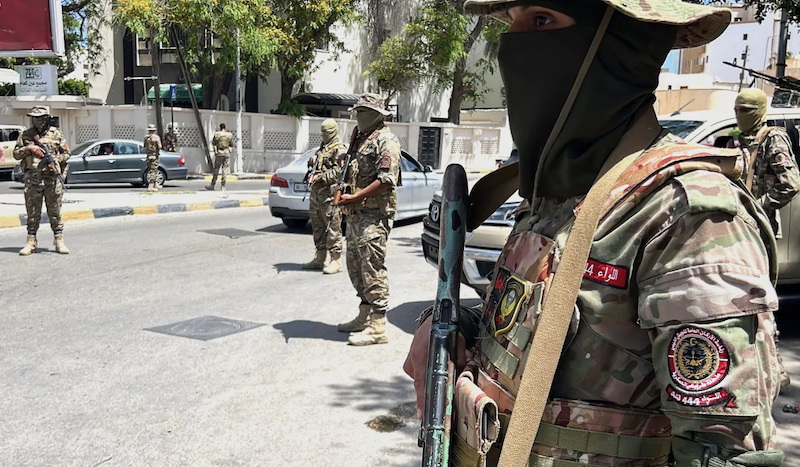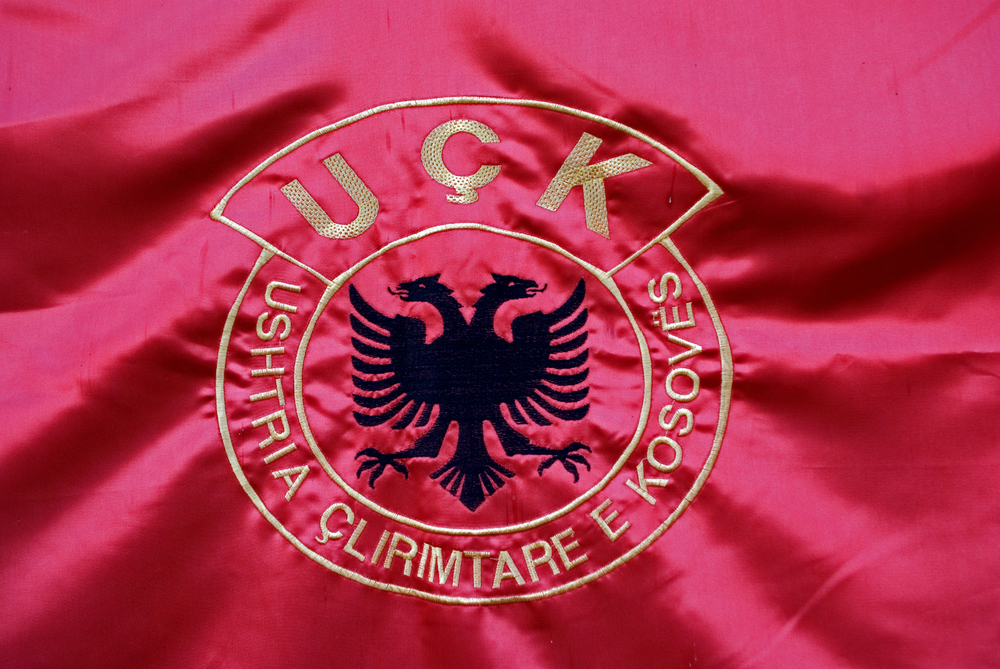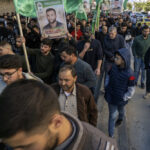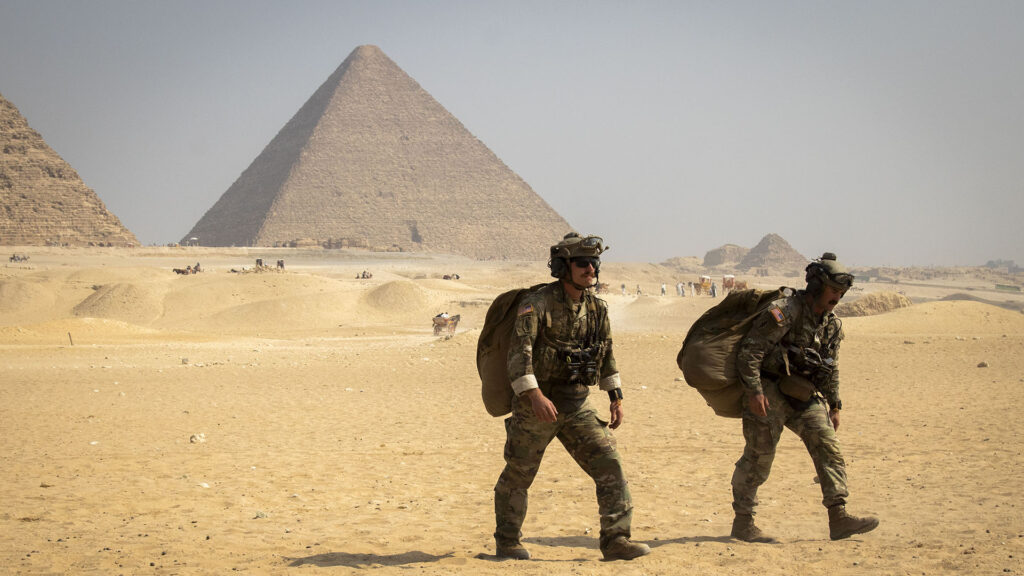From hunters to militias: The militarization of Dozos in Mali
The first in a series on militarized self-defense and vigilantism, this report examines the structure, operations, evolution, and impact of Dozo self-defense groups in central Mali.
Key findings
- Dozo militias are not a unified actor, but a fragmented and diverse ensemble of groups. While they share a common identity rooted in hunter fraternities, Dozo armed groups differ greatly in their ethnic composition, structure, leadership, and political engagement. Treating the Dozos as a single category risks overlooking the local dynamics that shape their alliances, behavior, and influence on the conflict environment.
- Attacks on civilians have considerably undermined the legitimacy of the Dozo militias. Dozos engage in violence against civilians — especially the Fulani, but also other communities. These abuses, often perpetrated under the guise of self-defense or counter-insurgency, have reinforced the perception that Dozo militias are carrying out collective punishment and ethnic targeting. They have also fed into jihadist narratives and fueled militant recruitment. Instead of providing security, their presence is increasingly associated with fear, reprisals, and recurring cycles of violence.
- Informal ties to the state have both empowered and endangered the Dozos. Cooperation with the state has strengthened the Dozo militias in some areas. However, it has also made them vulnerable to shifting political agendas. In 2023 and 2024, the Malian army and Wagner forces cracked down on some Dozo groups they had previously supported. This shows the contradictory role of the state as a conflict actor and arbiter.
- JNIM, a jihadist group, has paradoxically become the most effective force in disarming and weakening other non-state armed groups, including the pro-government Dozo militias. Through a combination of coercion, informal agreements, and strategic messaging, JNIM has persuaded or pressured communities to expel or demobilize pro-government self-defense groups in exchange for protection and access to livelihoods. This dynamic illustrates not only the failure of state-led stabilization but also the growing strength and influence of JNIM as the dominant armed actor in large parts of central Mali.
- Self-defense groups can become a driver of insecurity if left unchecked. Dozo militias, originally seen as a grassroots response to insecurity, often exacerbate violence locally. Their abuses against civilians, particularly Fulani, and their collaboration with state forces and foreign partners have often transformed localized disputes into broader communal wars. They have also been among the first to commit large-scale atrocities against civilians, setting a precedent for collective punishment and escalating cycles of violence.
Self-defense groups that once held social, spiritual, and protective roles within their communities have become entrenched in violence across the Sahel. The weakening of state authority and the escalation of conflict have turned the Dozo into militarized actors.
The word “Dozo” or “Donso” derives from the Bamanakan language, the language of the Bambara, Mali’s majority ethnic group, and means “he who returns home,” referring to a traditional hunter who comes back safely from the bush, usually after hunting game.1 In the Dogon language, the equivalent word is “Dana,” as reflected in the name of the ethnic Dogon-majority Dozo armed group Dan Na Ambassagou, which means “the hunters who trust in God.”
Over time, their role as community guardians shifted. In recent years, particularly in central Mali, Dozo groups have militarized and become increasingly involved in armed conflict. This change occurred in response to increasing insecurity, especially the spread of jihadist groups like Katiba Macina, a group that forms part of the al-Qaeda-affiliated Jama’at Nusrat al-Islam wal-Muslimin (JNIM). It was further driven by the state’s weakened security presence — a consequence of the 2012 jihadist takeover of northern and parts of central Mali, which led to the withdrawal of Malian armed forces (FAMa) from many rural areas. FAMa struggled to re-establish control and often abandoned or retreated from military positions under pressure from jihadist attacks. In this vacuum, Dozo militias reemerged as local defenders, organizing military-style formations in different areas. By 2018, much of central Mali, especially the Mopti and Segou regions, had fallen outside effective government control, with Dozo militias and jihadist groups increasingly asserting authority.
Dozo groups now operate in several of central Mali’s most conflict-affected areas, including the Bandiagara, Douentza, Mopti, and Segou regions (see map below). While they often act in the name of protecting their communities, their operations extend beyond village defense as they contribute to the escalation of violence. In particular, they have actively fought JNIM’s Katiba Macina branch and carried out retaliatory attacks against civilians, especially Fulani communities accused of supporting or sheltering jihadist militants. Dozo militiamen establish checkpoints as a common practice in various parts of central Mali, including on key transit routes to monitor people’s movements, collect informal tolls, and exert control. These checkpoints have also become sites of abuse where travelers, especially those from the Fulani community, are subjected to extortion, harassment, abductions, detention, and sometimes even torture and summary executions.

Despite often feeling abandoned by state forces due to delayed military support, lack of coordination, or being left exposed after joint operations,2 Dozo militias have repeatedly reengaged with the Malian military and foreign partners like the Wagner Group and Africa Corps when these actors return to their areas to conduct operations. These interactions have led to informal coordination in several military operations, further blurring the lines between state and non-state violence.
This report draws on ACLED data, field research, and interviews with local sources to examine the structure and operation of Dozo groups and their impact on the broader conflict environment. It focuses on three main networks: the Dozos of Macina, the Dan Na Ambassagou movement, and the Dan Na Ambassagou splinter group Dana Atem. Through tracing their evolution, this report provides insights into how Dozo engagement with civilian populations and jihadist groups has exacerbated intercommunal tensions, fueled cycles of violence, and transformed local disputes into widespread communal warfare.
From guardians to armed actors in a fragmented state
The transformation of these groups from traditional Dozo hunters into militarized self-defense groups accelerated after 2015, when central Mali saw a sharp increase in attacks by Katiba Macina. During its early operations, Katiba Macina targeted military and security force positions. The group carried out assassinations of forest guards, local officials, village chiefs, community leaders, and imams who were seen as an obstacle to its goals or who cooperated with the state.3 As violence escalated, state forces gradually withdrew from many rural areas, leaving communities increasingly exposed. In response, Malian authorities began to delegate local defense to fledgling Dozo militias, providing them with training, weapons, and financial support.4 This informal backing enabled the rapid growth of Dozo militias, who accelerated the militarization of community protection — making armed self-defense a defining feature of rural governance.
A key turning point was the 2016 assassination of Théodore Soumbounou, a respected Dogon Dozo leader, at the hands of suspected jihadist militants.5 His killing triggered more organized mobilization among Dogon Dozo groups, particularly in the Mopti region. It was in this context that Dan Na Ambassagou was formed, a structured ethnic Dogon-majority self-defense group aimed at coordinating armed resistance against jihadist influence. Dan Na Ambassagou views itself as a resistance movement against jihadist expansion, but also against the perceived historically rooted threat of Fulani dominance.
The militarization of the Dozo unfolded in the context of long-standing disputes between sedentary and pastoralist communities. Especially, tensions between Dogon and Bambara farmers on one side, and Fulani herders on the other, have repeatedly surfaced around access to land, resources, and political representation. In recent years, these tensions have become more violent, in part due to jihadist groups recruiting marginalized Fulani youth. Accusations of Fulani collaboration with jihadist militants have reinforced mistrust between communities and triggered cycles of violence, drawing civilians further into the conflict. What began as local disputes evolved into a wider pattern of violence, with the continued arming of communities and the militarization of group identities contributing to what in many areas now resembles communal wars. In this broader context of identity-based militarization, the Dozo groups themselves have changed from traditional hunting brotherhoods to militarized militias increasingly carrying out offensive operations against perceived rival communities and engaging in armed confrontations with JNIM militants.
In 2019, a series of local peace initiatives aimed to reduce hostilities between Dozo armed groups and JNIM’s Fulani-dominated Katiba Macina faction. One of the most prominent efforts took place in Macina, Niono, San, and Tenenkou cercles and was mediated by the Ministry of National Reconciliation with support from the civil society organization Faso Dambe.6 These talks brought together Dozo representatives, JNIM intermediaries, and Fulani community leaders, including Boubou Tigal Cissé, who was later assassinated.7 The August 2019 dialogue resulted in informal agreements to limit violence and re-establish a degree of coexistence. Similar processes were also initiated in Djenne and Bankass cercles, with support from a conflict mediation organization,8 involving local officials and community actors.
These agreements, though fragile and largely dependent on individual intermediaries, represented rare efforts to negotiate calm locally. Peace efforts followed years of escalating violence between the armed actors involved, retaliatory violence against civilian populations, and deepening ethnic cleavages. They ultimately fell short of preventing conflict in central Mali from escalating.
Fragmented forces, shared identity: How Dozo militias operate in central Mali
The operational behavior of Dozo self-defense groups in central Mali is diverse and decentralized, with little overarching coordination between the different groups. While these groups are united by the Dozo identity, they are often referred to in the media, however, generically as “Dozos” or chasseurs (the French word for hunters); this designation obscures the significant variation within and between these groups as they differ in structure, leadership, geographic scope, and levels of organization. Treating the Dozos as a single, uniform actor risks misrepresenting their place in the conflict and overlooking key local dynamics that drive violence and construct informal authority.
In the Segou and Mopti regions of central Mali, there are three main Dozo factions (see map below), each of which is composed of numerous subunits. Based on research conducted together with a local research assistant, the author identified, in total, at least 117 Dozo subunits. The following sections describe the three main Dozo factions operating in central Mali, including their leadership, organizational structures, and geographic spread.
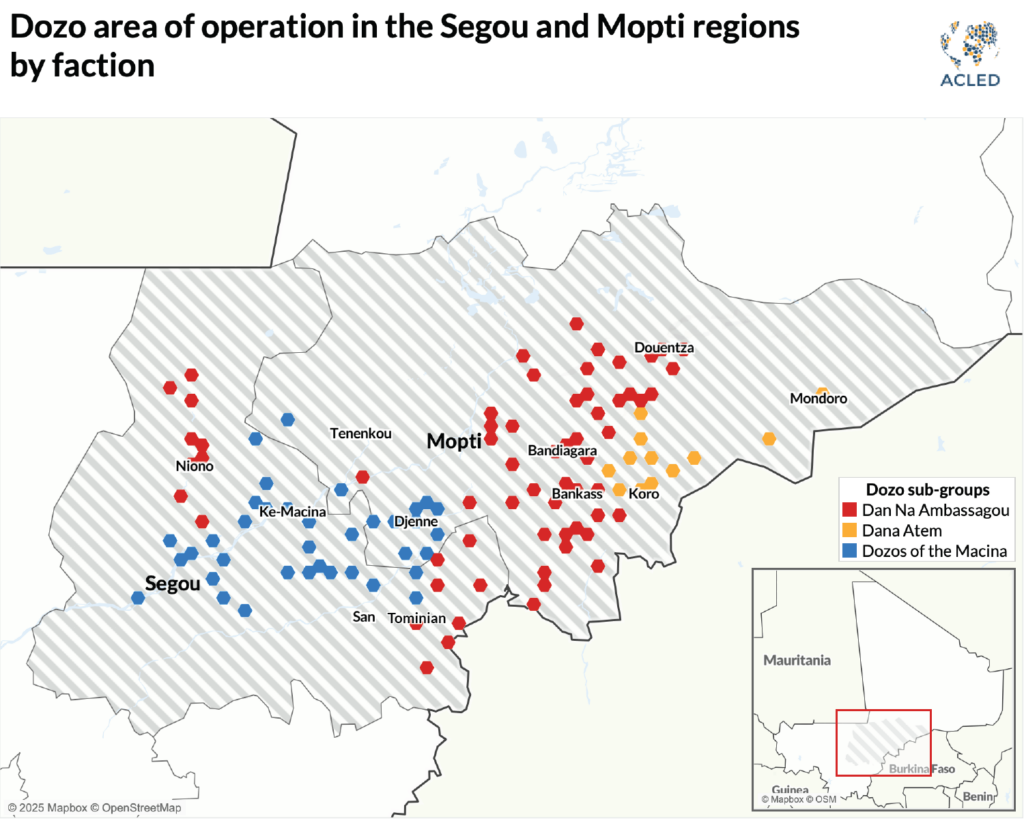
Dan Na Ambassagou
The most structured among Dozo armed groups is Dan Na Ambassagou, which presents itself as a resistance force against jihadist encroachment. The group is led by Youssouf Toloba, a long-serving militiaman and key figure in Dogon self-defense mobilization. It is primarily active in the cercles of Bandiagara, Bankass, Mopti, and Douentza and includes several identifiable branches. The most important branches are Dan Na Ambassagou’s main branch covering most of Bandiagara and parts of Douentza, the Bankass branch led by Noel Tessougue, the Fatobougou branch in southern Bandiagara and Djenne’s Fakala commune, and the Waraba and Koudjokouyafan branches in different parts of Tominian cercle.
Dan Na Ambassagou operates with a clear internal hierarchy and maintains political coordination offices in each cercle of activity, including Bankass, Bandiagara, Koro, and Douentza. These coordination units serve as local administrative and mobilization hubs, reinforcing the group’s presence on the ground. The movement has also extended its influence into parts of Segou, with a branch in Niono led by Sine Dembele, and an affiliated group in the village of Nouh-Bozo in Djenne cercle.
Although Dan Na Ambassagou is widely perceived as an ethnic Dogon group, its ranks also include members from other sedentary communities, including the Dafing, Samogo, Bobo, Telem, Mossi, and Bozo.9 However, these alliances have sometimes broken down. For instance, in the area of Timissa inhabited by ethnic Bobo, villagers initially supported or received protection from Dan Na Ambassagou, but distanced themselves amid rising tensions in the area. Many Bobos left, others negotiated arrangements with JNIM, and some faced reprisals from Dan Na Ambassagou.10 This example highlights the internal fractures and limitations of cross-community alliances within the group.
Dozos of Macina
The Dozos of Macina, mostly composed of Bambara hunters, have developed their own centralized structure, with a main base in Souleye under the leadership of Amadou Nionson Diarra. This base coordinates activities across several cercles, including Ke-Macina, Djenne, San, Tenenkou, and Niono. The network is ethnically diverse, including members from the sedentary or sedentarized Bozo, M’Bella, and Rimaibe communities, and is structured through a series of military camps tied to the central seat in Souleye. The Macina Dozos operate in a hierarchical fashion similar to Dan Na Ambassagou, although the political engagement of the Macina Dozos remains limited and informal.11 Until his death, reportedly while in Wagner detention,12 the Muslim religious leader (or marabout) Komani Tanapo served as a key interlocutor between the group and the authorities, particularly during the 2019 local peace processes. Since then, figures like Sinaly Maiga13 and Bandjie Sininta have attempted to assume similar roles.14
Dana Atem
Dana Atem, a smaller Dogon self-defense group led by Sidi Ongoiba, was formed in 2018 following disagreements within Dan Na Ambassagou. Its formation reflects the unease of some Dogon dissidents about the behavior of Dan Na Ambassagou, especially the use of violence against communities. Dana Atem presents itself as a more community-oriented alternative group that relies on cooperation with traditional and elected local authorities and encourages collaboration between the Dogon and Fulani communities to resist jihadist militants.15 It is primarily active in the areas of Mondoro and Koro. Unlike the Macina Dozos, Dana Atem maintains a small political bureau; it operates autonomously and does not openly coordinate or conflict with Dan Na Ambassagou. Its creation points to internal tensions within Dogon self-defense networks, although it does not suggest any broader fragmentation.
Similar to other Dozo self-defense groups, Dana Atem has been involved in communal conflicts, particularly in the area of Mondoro, where intercommunal violence between Dogon and Fulani populations has escalated into armed confrontations between Dana Atem and JNIM subgroups, including Katiba Serma and Ansaroul Islam, both active in the Mali-Burkina Faso borderlands. JNIM militants imposed a blockade on the town of Mondoro in October 2019.16 When JNIM lifted the blockade on Mondoro in June 2023, Dana Atem pledged to surrender its weapons, although many Dana Atem members integrated into the regular army after villages in the area where the militia operates concluded agreements with JNIM.17
State relations and repression
The Dozos’ relationship with the state remains ambiguous. Despite their differences, all Dozo factions intermittently cooperate with the Malian army and its foreign partners. They have sometimes participated in joint operations, shared intelligence, and acted as guides. Despite the government publicly condemning major Dozo abuses and calling for disarmament, the groups continue to operate.18
In 2023 and 2024, however, Malian forces and their Russian allies from Wagner carried out a series of operations targeting Dozo networks in Mopti and Segou. These included arrests, disarmament, and, in some cases, killings of local militia leaders and their associates. The pattern suggested a temporary attempt to restrict the presence of armed actors operating outside the direct control of the state. Marabout Komani Tanapo’s death while in state custody in March 2024 caused particular concern, given his role in brokering local peace agreements and his long-standing support for the Dozos of Macina. While authorities accused him of having ties to jihadists, many people close to the marabout did not believe the allegations and viewed the arrest as at odds with his known mediation efforts.19 He was arrested alongside 22 others. Since then, the authorities appear to have stepped back from such crackdowns, perhaps recognizing the operational utility of Dozo groups as auxiliary forces in areas where the state’s presence remains limited.
A major difference between the most important Dozo networks lies in their degree of coordination and their links to state authorities. Dan Na Ambassagou and Dana Atem are generally better structured and maintain closer relations with political and military actors, which has increased their visibility and influence at the local and national levels.
In contrast to other Dozo factions, Dan Na Ambassagou distinguishes itself through its overt political stance. Its leader, Youssouf Toloba, has repeatedly accused the Malian army of abandoning the Bandiagara region and, at times, issued ultimatums, even threatening to ally with the jihadists or Tuareg rebels if security is not restored.20 While the group benefits from cooperation with the state, it also positions itself as an ally, critic, and substitute of it. Toloba argues that cooperation between the Malian army and Dan Na Ambassagou is essential to facilitate the return of the state and secure Bandiagara and the surrounding areas.21
Common tactics and armament
Despite some tactical evolution, Dozo groups remain disadvantaged in direct confrontations with JNIM, whose militants are more battle-hardened, better armed, and better trained after years of conducting a multi-front war. Dozo militias use a combination of traditional hunting rifles and more advanced firearms, some likely obtained through diversion from state stockpiles. Dozo factions have also developed basic methods to counter IEDs. Dan Na Ambassagou militiamen have been observed carrying Yugoslav and Serbian-made weapons, some in pristine condition.22 These arms give the group a relative edge over other Dozo factions, although they remain militarily inferior to jihadist groups in terms of mobility and tactics, and often rely on improvised armament. For instance, Dozos frequently resort to the “dougouwouli,” a non-portable, artisanal cannon intended to frighten attackers through loud noise.23
Tactically, Dozo groups engage in a mix of village defense and offensive raids on communities suspected of harboring jihadist fighters or sympathizers. For example, in contested areas, Dan Na Ambassagou militiamen maintain checkpoints along key transit routes, including between Sevare and Bandiagara, Bandiagara and Bankass, Bandiagara and Koro, and around Douentza. These checkpoints are often used to extract money from travelers, with Fulani civilians in particular facing harassment, intimidation, or arbitrary detention. The Dozos of Macina engage in similar activities and have taxed, abducted, and killed Fulani road users, merchants, and marketgoers at checkpoints operated in areas such as Mbewani, Siribala, Matomo, and Yolo in Segou. While militias justify these checkpoints as efforts to improve local security, they have also become frequent targets of JNIM attacks. These practices have fueled resentment and further deepened ethnic tensions.
Local perceptions of safety and identity shape interactions between Dozo militias and civilians. In many Dogon and Bambara areas, Dozos are viewed as protectors against jihadist threats. However, among the Fulani community, their presence is seen as hostile.
Opening Pandora’s box: Dozo violence and the escalation of mass atrocities
Mass violence by Dozos marked a turning point in the conflict in central Mali. From 2016 to 2018, violence escalated with frequent armed clashes between Dozo militias on one side and jihadist militants and Fulani militias on the other. Violence became increasingly deadly, with large-scale attacks on entire villages. Dozo militias were behind several of the deadliest incidents, including in the villages of Koumaga, Lessagou-Peuhl, Bombou, and Somena, among others. In January 2019, Dan Na Ambassagou militiamen attacked the village of Koulogon-Peulh, reportedly killing at least 40 civilians. This event was followed by the massacre in Ogossagou on 23 March 2019, in which Dozo militiamen killed approximately 160 civilians.24 Together, these events opened a new chapter in the central Sahel conflict, where localized communal violence evolved into larger campaigns of collective punishment and village targeting. Although not the first mass atrocities in the region, they were unprecedented in scale and impact.
The massacres in Koulogon-Peulh and Ogossagou were widely attributed to Dan Na Ambassagou, although the leadership has denied responsibility. The Ogossagou attack triggered widespread public outcry and resulted in Mali’s president, Ibrahim Boubacar Keita, sacking senior military commanders and demanding that Dan Na Ambassagou dissolve. The group refused to disband,25 and the political fallout soon led to the resignation of then Prime Minister Soumeylou Bobeye Maiga.26
Not only did the Dozo militias contribute to an escalation in violence in central Mali, but they were also among the first non-state armed groups in the region to carry out mass atrocities on civilian populations, thereby contributing to a new pattern of warfare, but also the militarization of identities and growing hostilities between Dozo militias on one side and JNIM and Fulani militias on the other (see graph below). Their actions lowered the threshold for violent escalation, normalizing practices such as mass killings, abductions, and village burnings. These early atrocities were not only devastating in their own right but also reshaped how other armed actors operated. Jihadist groups like JNIM began to adopt similar tactics, increasingly framing entire communities as enemies based on perceived support for self-defense groups, militias, and the state.

Despite some local efforts to negotiate calm in the aftermath of the Koulogon-Peulh and Ogossagou massacres, JNIM militants steadily gained ground and began scaling up operations in late 2019, particularly in the Dogon heartland in the Bandiagara region. The group cut off access to key transit routes linking Bandiagara to Bankass and Sevare, blew up bridges to obstruct traffic and military deployments, and intensified attacks on Dan Na Ambassagou checkpoints and on Dogon villages considered loyal to the group. For instance, in the Dogon village of Sobane-Da in June 2019, at least 35 Dogon civilians were killed in an attack likely perpetrated by Katiba Macina militants.27 Over time, JNIM outpaced Dozo militias in scale and intensity of violence (see graph above).
Increasingly indiscriminate violence later extended to Malian military operations. State forces scaled up offensives across central Mali following the deployment of the Wagner Group to Mali in December 2021. Wagner’s presence enabled the return of FAMa to areas from which they had previously withdrawn, including in parts of Mopti and Segou. These joint operations, sometimes involving Dozo militias, also eclipsed militia activity in scale and often resulted in heavy civilian fatalities, further deepening the cycle of violence (see graph above).
These deployments also gave rise to a tripartite alliance among FAMa, Wagner forces, and Dozo militias, which jointly conducted operations against jihadist strongholds and suspected collaborators. However, these campaigns were frequently marked by indiscriminate violence, including arrests, killings, the destruction of civilian property, and large-scale cattle theft.28 The joint counter-insurgent operations often conflated jihadist combatants with non-combatant civilians, in particular Fulani, but also members from other ethnic groups, including Bambara, Dogon, Songhai, Bozo, Arabs, and Tuareg.
Dozo groups participated actively in several of these joint campaigns, which occasionally provided Dozo militias with a renewed presence and firepower. However, once the time-limited operations ended or the military withdrew from rural areas, Dozos became exposed and vulnerable to renewed offensives by JNIM that sought to reassert influence and punish those associated with pro-government forces. The Mopti region, where these dynamics are most visible, has consistently remained the deadliest part of the central Sahel in terms of conflict-related fatalities.
The early involvement of Dozo groups in mass violence has had far-reaching consequences. It shattered their reputation as community protectors and instead positioned them as actors in a broader conflict defined by cycles of collective punishment. The number of civilian deaths caused by Dozo militias has declined since 2021, likely a direct result of JNIM’s intense military pressure against them, as well as JNIM’s own growing influence and capacities. However, the patterns of violence that Dozos have shaped continue to influence how conflict unfolds in central Mali and across the Sahel, including through collective punishment of civilians along ethnic lines and by pioneering mass violence that other actors have also adopted.
How the Dozo and JNIM conflict fueled communal wars
The protracted conflict between Dozo self-defense groups and JNIM militants has evolved into broader communal warfare that has drawn in civilian populations, disrupted livelihoods, and turned village disputes into regionwide struggles for influence in Mopti and Segou regions. In this environment, civilians are both targets and subjects of strategic control, shifting loyalties, forced displacement, and violence from all sides.
Beyond central Mali, these dynamics involving Dozos and JNIM came to have ripple effects on the broader conflict environment in Mali. The intensification of violence, the collapse of local governance, and deepening communal divisions created fertile ground for JNIM to grow and extend its influence beyond its traditional strongholds. After JNIM consolidated control in parts of the conflict epicenter in the Mopti and Segou regions, it used these areas as a staging ground for its expansion into the southern and western parts of the country. This consolidation substantially contributed to the group’s growing presence in the Koulikoro, Kayes, and Sikasso regions — areas that were previously not as heavily affected by the conflict (see map below).

The Dozo militias have not only targeted perceived jihadist collaborators but have also turned on communities within their own ethnic groups who have refused to support them or engaged with JNIM or Fulani communities, showing how coercion and mistrust have fractured relations between and within communities. JNIM has exploited these divisions to expand its influence, sometimes intervening to defend communities that reject Dozo militias — as in Borko in 2020,29 and during the 2022 FAMa-Wagner attacks on the villages of Goumi-Habe and Goumi-Foulbe, which respectively are majority Dogon and Fulani, thus securing local support and legitimizing its presence.
In the wake of indiscriminate violence and abuses against Fulani populations, JNIM has imposed sieges and blockades on towns and villages. It has also pressured communities associated with the Dozos or the state to surrender their weapons and accept JNIM’s authority in exchange for protection and access to livelihoods. Several cases in the Mopti and Segou regions show how this dynamic has transformed localized disputes into communal wars involving entire communities, often along ethnic lines. JNIM attacks on villages perceived as loyal to the state or Dozo groups serve not only as military operations but are also part of the group’s coercive strategy to dismantle local resistance and assert dominance. Similarly, Dozo reprisals have included punitive violence against Fulani civilians, while JNIM militants and Fulani militias have capitalized on these incidents to frame the conflict along ethnic lines. These struggles for dominance have reinforced perceptions of collective punishment and further deepened community divisions. The intertwining of self-defense groups, jihadist militants, and state forces has thus blurred the lines between insurgency and communal war.
For example, in the village of Farabougou in Niono cercle in October 2020, JNIM militants accused Bambara Dozo militiamen of abusing the local Fulani community.30 In response, JNIM militants carried out a mass abduction of marketgoers from Farabougou. Deadly clashes between JNIM militants and Dozos31 ultimately escalated into a protracted siege.32 JNIM militants cut off access to basic goods and threatened reprisals against surrounding communities. The crisis spread quickly across the Niono cercle and surrounding areas, drawing in reinforcements and retaliatory violence. Following the 2020 coup, the Malian junta made a highly publicized deployment to Farabougou, where the army established and maintained a permanent presence to protect the population.33 The siege culminated in a large-scale JNIM attack on the military base in the village on 19 August 2025. JNIM militants overran the base and looted a large amount of weapons and ammunition before burning the site.34 As a result of the attack, both the army and the population left Farabougou. The siege eventually turned what had been a hyperlocalized dispute into a broader conflict that exposed the limits of both community self-defense and state intervention.
A similar situation unfolded in Marebougou, in the Derrary commune of Djenne cercle, where JNIM militants imposed a siege on the village in April 2021.35 The siege was reportedly triggered by a Dozo leader violating a peace agreement by recruiting new members.36 In October 2021, militiamen affiliated with the Macina Dozos and members of Dan Na Ambassagou joined forces in an attempt to break the blockade. The joint effort failed, and the battle resulted in at least 50 people killed, making it one of the deadliest confrontations involving these groups. The fighting soon spread to surrounding villages and also came to encompass the nearby communes of Fakala and Femaye, displacing civilians and further destabilizing the area. This episode illustrates both the tactical limitations of self-defense groups and the growing pressure they face as JNIM expands its presence across central Mali.
Since mid-2023, JNIM has intensified its siege strategy across central Mali, especially in the areas of Macina, Djenne, and Tenenkou, by imposing sieges and exerting pressure on villages associated with the Dozos. In many cases, this coercion led to informal agreements in which residents and militiamen surrendered their weapons to JNIM in exchange for security guarantees and the opportunity to resume farming and other livelihood activities. These agreements often followed evictions or sieges and reflected a systematic approach by JNIM to target clusters of Dozo-affiliated villages to eliminate local resistance and assert control. As a result, entire communities have accepted JNIM’s authority to avoid further violence, contributing to the demobilization of Dozo groups and allowing JNIM to expand its presence with limited resistance. In this way, the group has positioned itself as a more consistent and effective authority than the state or local self-defense groups.
JNIM’s expansion has not been achieved by military means alone. Its rise was also shaped by the collapse of trust in state institutions and the growing perception of Dozo militias as abusive or predatory. By portraying Dozo militiamen as partisan actors and capitalizing on Dozo violence, which is particularly hostile to Fulani communities, JNIM has gained the support of populations who feel threatened or excluded. The early ethnic framing and targeting of the Dozo mobilization have contributed to this shift. By positioning itself as the defender of these communities, JNIM weakened the legitimacy of the Dozos and transformed a local security response into a broader communal conflict. This shift has allowed JNIM to consolidate its authority in rural areas that self-defense groups once defended.
The Dozo militias are no longer engaged in isolated defense actions; they are now involved in a broader conflict over territory, civilian loyalty, and local governance. Their confrontation with JNIM has become a regional struggle for influence and control. As this rivalry intensifies, central Mali remains the deadliest region in the central Sahel, and the persistently high levels of violence and fatalities are linked to these changing dynamics.
Looking ahead: What’s next for the Dozo militias?
The role of the Dozo militias in central Mali is changing rapidly. Under sustained pressure from JNIM, Dozos are losing territorial control and operational significance. Where the Malian army has withdrawn or only operates sporadically, Dozo units are often left exposed. Some have been disarmed or forced to disband by JNIM, while others remain inactive and await the return of military forces or their Wagner partners to resume joint operations.
This disparate military engagement has left communities increasingly vulnerable. When security forces pull back, JNIM often launches retaliatory campaigns against villages it considers allies of the Dozos or the state. These offensives further undermine local confidence in the self-defense groups and force communities to seek alternative strategies for their survival and protection.
In many areas, this has led to informal agreements with JNIM. Communities have accepted the group’s authority in return for the opportunity to resume farming, fishing, trading, and other basic activities to sustain life. Once under JNIM’s influence, communities often have to abide by strict rules, including paying zakat (Islamic taxes or alms), requiring women to wear the veil, and prohibiting demobilized Dozos from wearing their sacred ochre or brown hunter suits. JNIM militants also frequently destroy sacred objects like carved statues and protective amulets and talismans known as “gris-gris” used in local animist practices, which they consider idolatry. These agreements often require Dozos to surrender weapons and restrict their activities, effectively removing their role as community protectors.
This situation presents a paradox, as it is not the state but a rival non-state armed group that is actively dismantling Dozo militia structures. By capitalizing on both the Dozos’ tactical weakness and the fear provoked by their indiscriminate violence against civilians, JNIM has positioned itself as a more capable and effective force in the absence of a reliable state presence. With its coercive strategy through a mixture of threats, sieges, and negotiated settlements, JNIM has succeeded in demobilizing Dozo groups in large parts of central Mali.
At the same time, the Malian state has played an ambiguous role. It has acted both as a party to the conflict and as a mediator in efforts to contain the violence. In December 2020, the transitional government tasked the High Islamic Council with brokering the Niono accords that concluded in March 2021 with a temporary ceasefire between Dozo militiamen and Katiba Macina militants after months of deadly clashes in Niono cercle. While the agreement allowed the Dozos to keep their weapons and granted some concessions to the jihadists, it collapsed within weeks.37 As shown, this and other state-led mediation attempts have not led to long-term solutions, as these fragile agreements often break down with shifting power dynamics or renewed disputes. Instead, inconsistent state engagement has often increased the volatility of local dynamics, creating conditions in which communities must choose between the unreliable protection of the state and its Dozo allies and the coercive stability offered by JNIM.
This shift poses a key dilemma for the future of community security. The Dozo militias were never intended to be formal security forces. Their militarization has entrenched them in armed conflict. Today, their presence can expose the civilian population to greater risks when state forces do not provide sufficient protection. The same populations also face risks of reprisals from state forces and their allies for subjecting themselves to JNIM’s authority and could therefore be accused of complicity with the militants.
Attempts to integrate Dozo militiamen into the national army raise further concerns as Dozo members have been linked to serious abuses, especially against Fulani civilians. Without inclusive processes, proper vetting, oversight, and accountability mechanisms, such integration risks entrenching ethnic bias within the security forces and further undermining public confidence. These limitations have already hampered earlier disarmament, demobilization, and reintegration initiatives and highlighted the risks of integrating irregular forces without addressing community-level grievances over ethnic targeting, impunity for past atrocities, and the lack of protection for marginalized populations.
Stabilizing central Mali requires more than disarmament or the formal takeover of militias. Future interventions must focus on understanding how communities deal with insecurity in practice, how power and legitimacy are negotiated at the local level, and how inclusive public authority can be restored in disputed areas. They also need to examine the impact that militarized self-defense and mobilization along ethnic lines can have on divided societies and broader conflict dynamics. Tackling JNIM’s growing influence and the decline of Dozo militias is about strengthening security on the ground and building a sustainable framework for governance, justice, and accountability in regions marked by armed competition and fragmented state authority.

